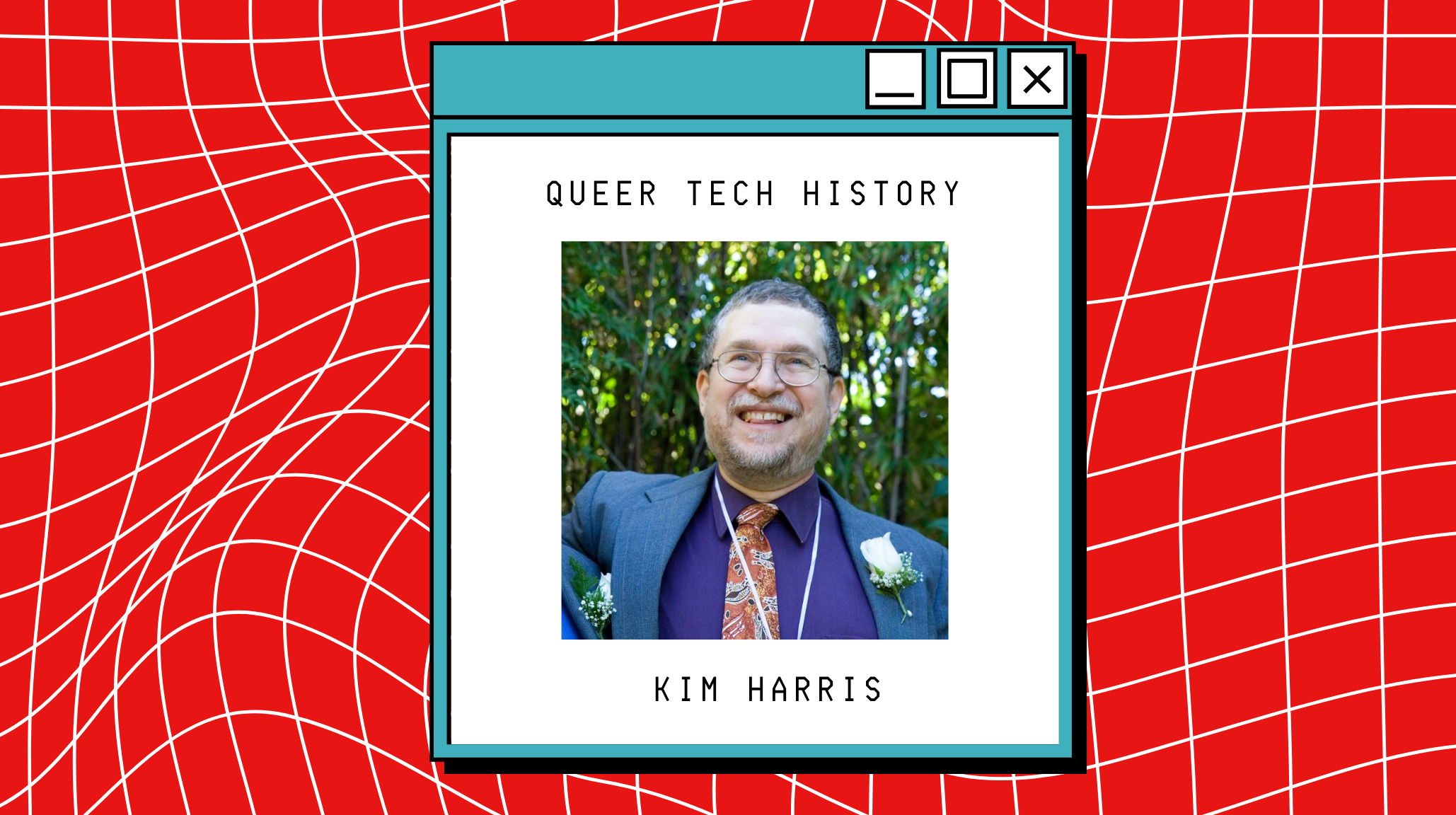Queer people have always been at the forefront of innovation—especially in tech. From the earliest days of computing to today’s digital equity movements, LGBTQ+ technologists have shaped the tools, systems, and cultures that define our digital world. Yet their stories are often overlooked in mainstream narratives. So here’s to their work: from microchips to processors, algorithms to activism—these are the queer innovators who helped build the future.

Lynn Conway
Lynn Conway was a pioneering computer scientist and electrical engineer whose work transformed modern computing. Best known for co-authoring Introduction to VLSI Systems, Conway laid the foundation for the microchip revolution, enabling scalable and accessible chip design. Her innovations at Xerox PARC, as well as her leadership at DARPA and the University of Michigan, helped drive breakthroughs in computer architecture and machine intelligence. Earlier in her career, she was fired from IBM in 1968 after coming out as transgender—a injustice only rectified decades later when IBM issued a formal apology in 2020.
Beyond her technical brilliance, Conway became a powerful advocate for transgender rights. After publicly sharing her story in 2000, she used her platform to fight for workplace equity, visibility, and dignity for transgender people in tech and beyond. Her legacy lives on in every integrated circuit and every Queer technologist she inspired. Lynn passed away in June 2024, leaving behind a world forever changed by her courage and contributions.

Christopher Strachey
Christopher Strachey was a pioneering British computer scientist whose work helped define modern computing. A close contemporary of Alan Turing, Strachey developed the first computer-generated love letter and computer music—programmed on the Ferranti Mark I. He also created one of the earliest computer games, a draughts program, and helped popularize time-sharing, enabling multiple users to work on a single computer simultaneously.
Born in 1916 to a cryptographer father and suffragist mother, Strachey studied at King’s College, Cambridge, and later became a key figure in programming language design. He founded the Programming Research Group at Oxford and collaborated with Dana Scott on foundational work in formal semantics. Openly Queer in a restrictive era, Strachey’s intellect, creativity, and wit left an indelible mark on computing—from code to music to love.

Alan Turing
Alan Turing was a pioneering mathematician and computer scientist whose ideas laid the foundation for modern computing. In 1936, he introduced the concept of the Turing machine, a theoretical device that formalized the principles of algorithms and computation. During World War II, Turing worked at Bletchley Park, where his codebreaking efforts—especially against the German Enigma machine—were instrumental in the Allied war effort. After the war, he designed the Automatic Computing Engine, one of the earliest designs for a stored-program computer.
Despite his monumental contributions, Turing was prosecuted in 1952 for being Gay, at a time when homosexuality was criminalized in the UK. He was sentenced to chemical castration, lost his security clearance, and was barred from continuing his government work. He died just two years later, in 1954, at age 41. Today, Turing is remembered not only as a computing pioneer but also as a symbol of Queer brilliance and resilience whose legacy continues to shape science and society.

Edith Windsor
Edie Windsor was a trailblazer in both tech and LGBTQ+ rights. Known for her unmatched debugging skills, she spent 16 years at IBM, where she specialized in systems architecture and natural language processing. After leaving IBM in 1975, she founded PC Classics, helping LGBTQ+ organizations enhance their tech capabilities.
Her activism reached national significance in 2013, when she won a landmark Supreme Court case that struck down the Defense of Marriage Act, laying the groundwork for nationwide marriage equality. Beyond the courtroom, she served on the boards of SAGE and GLAD and marched proudly for LGBTQ+ rights.

Angelica Ross
Angelica Ross is an actress, activist, and self-taught technologist best known for her role as Candy on Pose. But beyond the screen, Ross is a force in the tech world. In 2014, she founded TransTech Social Enterprises, a co-learning and co-working community that empowers LGBTQ+ individuals—especially Black trans women—with technical training, career development, and economic opportunity. TransTech’s G.R.O.W. program centers those often excluded from traditional workforce initiatives, including trans women with experiences in sex work, treating their lived expertise as valid and valuable.
Ross has long championed diversity in tech, using her platform to push for greater inclusivity, access, and recognition of marginalized voices across industries. Her work redefines what leadership in tech can look like—and reminds us that lived experience is just as important as formal credentials.

Sister Mary Elizabeth Clark
Sister Mary Elizabeth Clark was a pioneering technologist and activist who transformed AIDS education through digital innovation. In 1990, she took over the struggling bulletin board system AEGIS (AIDS Education Global Information Service) and turned it into the most comprehensive and accessible online AIDS information network of its time. Working up to eighteen hours a day, she single-handedly maintained the site, uploading medical studies, journal articles, and educational resources with clarity and compassion. At its peak, AEGIS saw nearly 300 visitors per hour and 25 million monthly hits, providing critical, nonjudgmental information to patients, doctors, and the global public during a time of widespread fear and misinformation.

Ann Mei Chang
Ann Mei Chang is a technologist and social innovator who has built a career at the intersection of tech and impact. After leading engineering teams at top companies like Apple, Google, and Intuit—where she helped deliver products like Final Cut Pro—she shifted to the social sector in 2011, becoming a Senior Advisor for Women and Technology at the U.S. State Department. Since then, she has held leadership roles at USAID, Mercy Corps, and Pete for America, applying her expertise to drive innovation in nonprofits and government.
Her 2018 book, Lean Impact, brings startup principles to social change work, offering a practical roadmap for creating lasting, scalable solutions. Named one of the most powerful LGBTQ+ people in tech, Chang continues to champion cross-sector collaboration, using technology to tackle the world’s most pressing challenges.

Peter Landin
Peter Landin was a groundbreaking computer scientist whose work in the 1960s helped define the structure of modern programming languages. He invented the SECD machine—the first abstract machine for functional programming—and created ISWIM, a highly influential language that introduced foundational ideas like "syntactic sugar," a term he coined. His innovations shaped the development of languages like Haskell and Python, and his work continues to influence how we write and think about code today.
Landin was also a passionate political activist, involved in both the anti-war and gay liberation movements. Later in life, he grew critical of the computing industry's alignment with corporate power and surveillance, expressing regret that his contributions might have unintentionally supported those systems. Still, his academic legacy remains powerful.

Stephanie VanPutten
Stephanie VanPutten is a technologist, entrepreneur, and founder committed to eliminating systemic bias in tech and business. She is the creator of Blendoor—now BlendScore—a DEI analytics platform that measures equity outcomes and helps companies make meaningful progress beyond performative promises. A former ski racer turned coder at 13, VanPutten went on to earn degrees from Stanford and MIT before working at Microsoft and TripAdvisor. After facing bias in the hiring process herself, she launched Blendoor by coding the first version solo. In 2017, she founded Visible Figures, the world’s largest network for venture-backed Black women and nonbinary founders. Her work has been featured in The Atlantic, NYT, Bloomberg, and Forbes, and she's been named to Fortune’s 40 Under 40. With over two decades in tech, VanPutten continues to drive systemic change at the intersection of data, equity, and power.

Sophie Wilson
Sophie Wilson is a pioneering British computer scientist whose work helped shape modern computing. Best known as the co-designer of the ARM architecture, Wilson's innovations in microprocessor design laid the foundation for billions of devices worldwide—from smartphones to tablets. After studying at the University of Cambridge, she joined Acorn Computers, where she developed the BBC Micro and helped popularize personal computing in the UK. Her work on Reduced Instruction Set Computing (RISC) made ARM processors lightweight, power-efficient, and ideal for mobile devices. Beyond tech, Wilson enjoys working with her local theater group and once appeared on the BBC drama Micro Men.

Jon "maddog" Hall
Jon "maddog" Hall is a legendary technologist and outspoken advocate for free and open-source software, with over 50 years in the industry. Known for his work on the VMS operating system at DEC and his leadership at Linux International and the Linux Professional Institute, Hall has been instrumental in advancing the GNU/Linux movement and promoting software freedom worldwide. A self-described aging, gay, hippy geek, he earned his nickname while teaching in the 1970s and has since become a beloved figure in the open-source community. In 2012, he publicly came out in an article honoring Alan Turing, cementing his place not only as a computing pioneer but as a champion for authenticity, collaboration, and ethical tech.

Arlan Hamilton
Arlan Hamilton is a venture capitalist, author, and founder of Backstage Capital, a firm dedicated to investing in underrepresented founders—women, people of color, and LGBTQ+ entrepreneurs. With no formal background in tech or finance, Hamilton entered the venture world after a successful career in the music industry, managing tours for artists like Pharrell Williams and Toni Braxton. In 2015, while experiencing homelessness, she launched Backstage Capital with the mission to close the equity gap in startup funding.
A powerful storyteller, Hamilton is the author of It’s About Damn Time and Your First Million, blending personal narrative with tactical advice. She’s been honored by Fortune’s 40 Under 40 and Fast Company’s Queer 50 and continues to champion equity across tech, entrepreneurship, and media.
Help me grow! Subscribe to my email newsletter!










